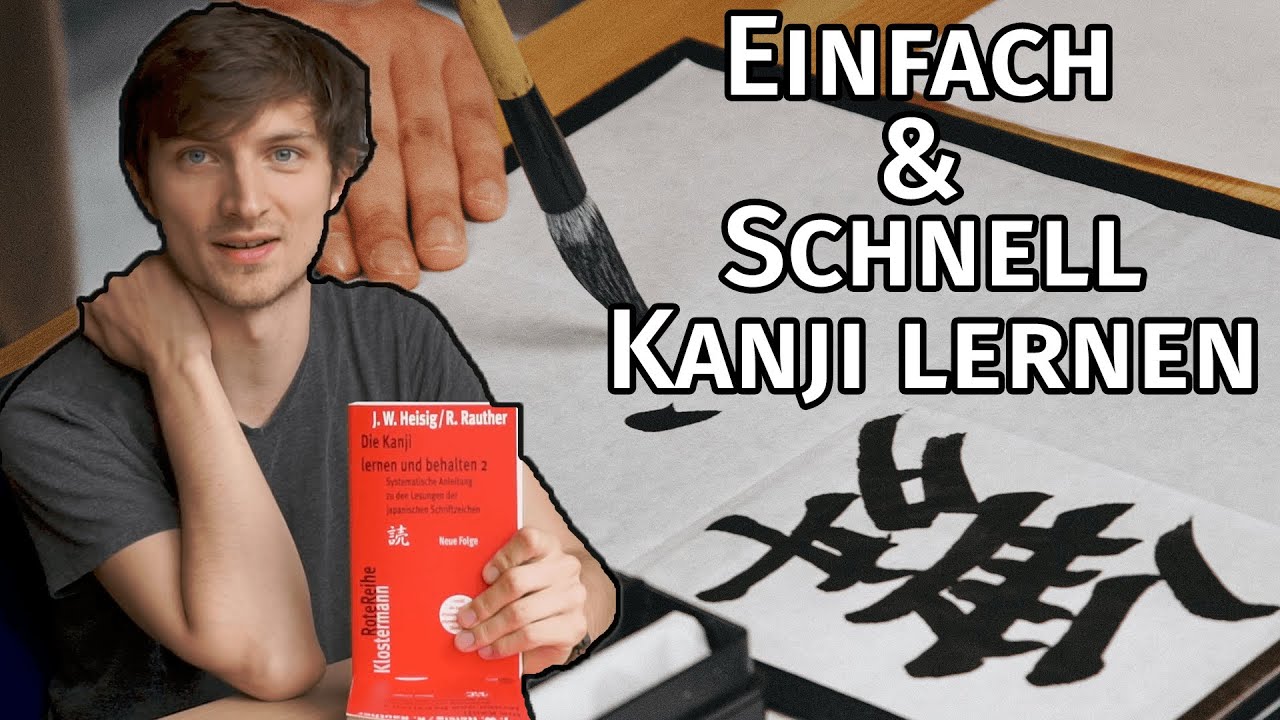How I learn and REMEMBER vocabulary in 5+ languages 🐰
Summary
TLDRElisa Vega, die über 10 Sprachen gelernt hat, teilt fünf Tipps, um Vokabeln effektiver zu behalten. Erstens: Vokabeln im Kontext lernen, nicht isoliert. Zweitens: Neue Wörter gleichzeitig sehen und hören, z.B. durch Untertitel. Drittens: Für Fortgeschrittene, vollständige Immersion im Zielsprachumfeld, z.B. Flashcards in der Zielsprache. Viertens: Vokabeln kurz nach dem Lernen aktiv anwenden, um die Erinnerung zu stärken. Fünftens: Aktives Abrufen der Wörter in der Zielsprache üben. Diese Methoden helfen, Vokabeln nachhaltig zu verinnerlichen und die Sprachfähigkeiten zu verbessern.
Takeaways
- 😀 Lernen Sie Vokabeln im Kontext, um ihre Bedeutung besser zu verstehen.
- 😀 Sehen und hören Sie neue Wörter gleichzeitig, um die Erinnerung zu fördern.
- 😀 Nutzen Sie interaktive Untertitel in Filmen oder Serien für ein verbessertes Lernen.
- 😀 Arbeiten Sie mit Lernkarten, die die Zielsprache auf sich selbst beziehen (z. B. Französisch-zu-Französisch).
- 😀 Produzieren Sie das Wort schnell nach der ersten Begegnung, um die Erinnerung zu festigen.
- 😀 Üben Sie aktive Rückrufe in der Zielsprache, anstatt nur passive Rückrufe in Ihrer Muttersprache.
- 😀 Verbessern Sie Ihre Aussprache, indem Sie Wörter laut lesen und sie mit muttersprachlichen Sprechern vergleichen.
- 😀 Versuchen Sie, die Lernumgebung vollständig auf die Zielsprache umzustellen (z. B. Geräteeinstellungen).
- 😀 Setzen Sie sich Herausforderungen, indem Sie Wörter im schwierigeren Kontext abrufen.
- 😀 Glauben Sie an sich selbst und geben Sie niemals auf beim Sprachenlernen.
Q & A
Was ist das Hauptproblem beim Lernen neuer Wörter, das Elisa Vega anspricht?
-Das Hauptproblem ist, dass viele Lernende Wörter schnell vergessen, nachdem sie sie einmal gelernt haben.
Wie empfiehlt Elisa, Vokabeln im Kontext zu lernen?
-Elisa empfiehlt, Wörter immer in Sätzen oder Phrasen zu lernen, anstatt isoliert.
Warum ist es vorteilhaft, Vokabeln visuell und auditiv zu lernen?
-Es hilft, die Wörter besser zu behalten, wenn man sie sieht und hört, beispielsweise durch Filme oder Podcasts mit Untertiteln.
Was ist Lingo Pie und wie kann es beim Sprachenlernen helfen?
-Lingo Pie ist ein Streaming-Dienst für Sprachlerner mit interaktiven Untertiteln, der das Lernen durch automatisierte Flashcards und Quizfragen unterstützt.
Wie sollten Fortgeschrittene ihre Flashcards gestalten, um effektiver zu lernen?
-Fortgeschrittene sollten ihre Flashcards in der Zielsprache ohne Übersetzung in die Muttersprache erstellen, um die Begriffe besser zu vernetzen.
Was ist der Vorteil, Vokabeln kurz nach dem Lernen zu produzieren?
-Je schneller man mit den neuen Wörtern arbeitet, desto besser kann man sie langfristig behalten.
Was versteht man unter aktivem vs. passivem Abruf von Vokabeln?
-Aktiver Abruf bedeutet, sich in der Zielsprache selbst herauszufordern, während passiver Abruf einfacher ist, da man die Muttersprache als Hilfestellung nutzt.
Welche Tipps gibt Elisa, um die Aussprache neuer Wörter zu üben?
-Sie empfiehlt, neue Wörter laut auszusprechen und die Aussprache mit der von Muttersprachlern auf Plattformen wie Forvo zu vergleichen.
Wie kann man sein Gerät und seine Lernumgebung an die Zielsprache anpassen?
-Man kann die Spracheinstellungen seines Geräts oder seiner Lern-Apps auf die Zielsprache umstellen, um sich besser in die Sprache einzutauchen.
Welche Rolle spielt die emotionale Verbindung beim Lernen neuer Wörter?
-Eine emotionale Verbindung kann das Lernen erleichtern, da man sich eher an Wörter erinnert, die mit persönlichen Erlebnissen oder positiven Gefühlen verbunden sind.
Outlines

此内容仅限付费用户访问。 请升级后访问。
立即升级Mindmap

此内容仅限付费用户访问。 请升级后访问。
立即升级Keywords

此内容仅限付费用户访问。 请升级后访问。
立即升级Highlights

此内容仅限付费用户访问。 请升级后访问。
立即升级Transcripts

此内容仅限付费用户访问。 请升级后访问。
立即升级浏览更多相关视频

5 Rules I Learned at Stanford: Design Thinking

🎧 Historias para Mejorar tu Español 🔊 Improve your Spanish Listening Skills with Stories in Spanish

Einfach und schnell Kanji lernen - Die Kanji lernen und behalten + Leseprobe

5 Years of Clothing Brand Marketing Advice in 7 Minutes

Wie du dir alles merkst, was du liest (5 Schritte für bessere Merkfähigkeit)

Selling Without Being Salesy: The Kind Way to Sell.
5.0 / 5 (0 votes)
